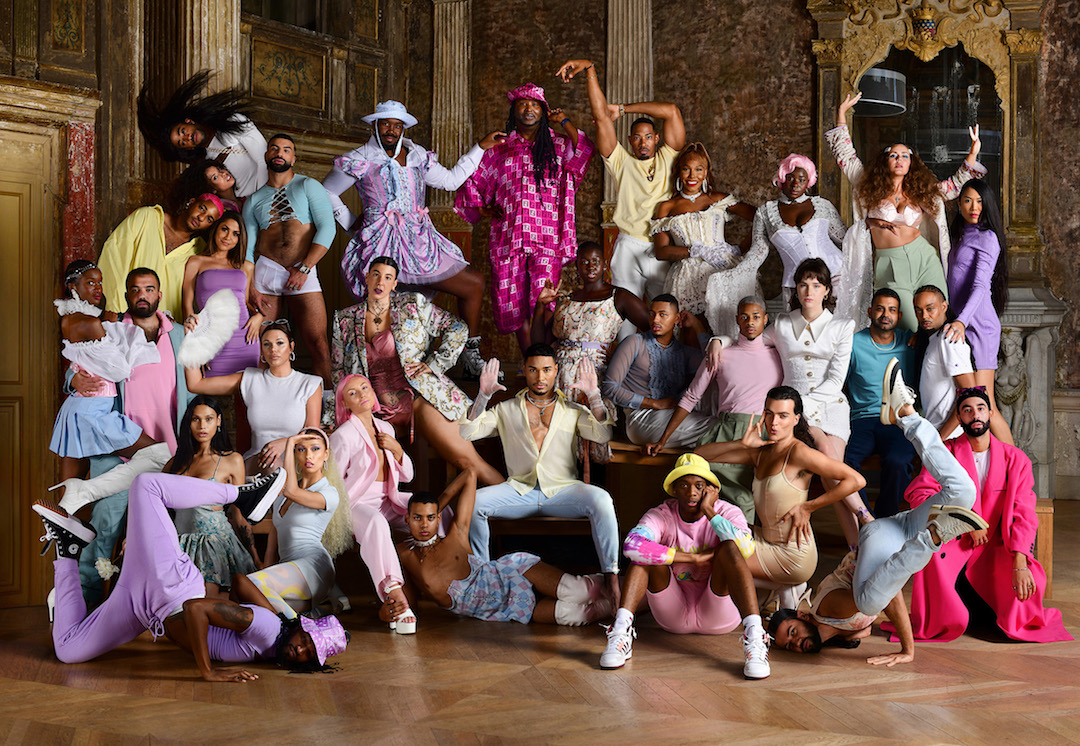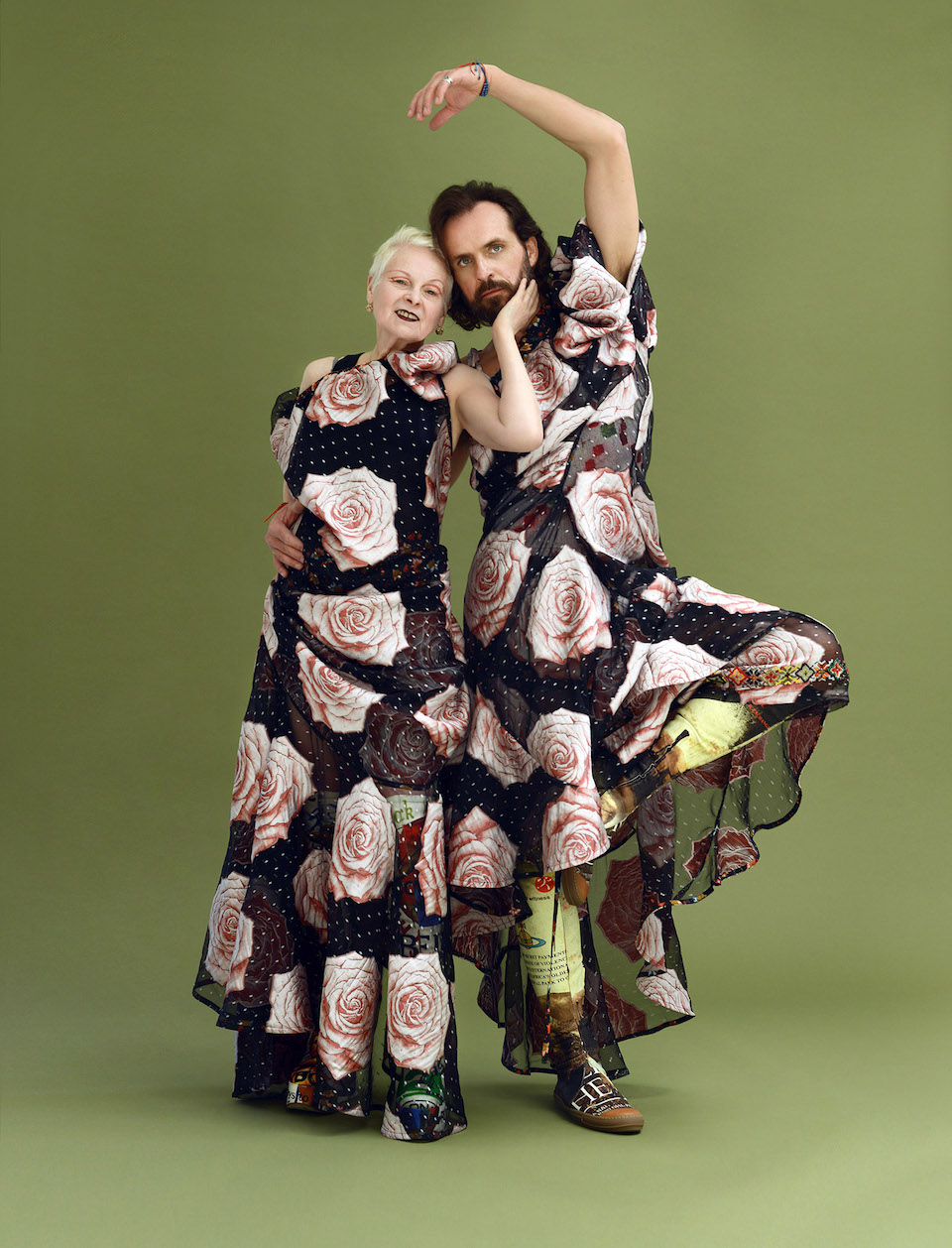© Frederic Aranda, OpenWalls Arles 2021 Single Image Winner.
Shooting the likes of Anna Wintour, Marcus Rashford, Damien Hirst and Margaret Thatcher, the three-time OpenWalls Arles winner reflects on what makes a good portrait.
“As soon as I started taking pictures, I wasn’t interested in being anything but a photographer,” Frederic Aranda remembers. At the turn of the century, Aranda was studying Japanese at Oxford University, teaching himself photography between classes. “It was a way to meet people at first, but when I lived in Japan I started getting photography jobs. It was very trial and error, but from the start, I knew that I wanted to be a portrait photographer.”
Aranda has since shot the likes of Anna Wintour, Vivienne Westwood, Tom Ford, and Margaret Thatcher. His work has been featured in Vogue, Vanity Fair, GQ, Harper’s Bazaar, The Sunday Times, and Esquire, with a penchant for group portraiture found across his portfolio. He has also featured for three consecutive years in OpenWalls Arles, an international photography award and exhibition, created in collaboration with Galerie Huit Arles. Designed to elevate the careers of both emerging and established photographers, OpenWalls Vol.4 – centred on the theme of “truth” – will display winning works alongside Les Rencontres d’Arles, the world-renowned annual photography festival. Each year, 50 winning images and two bodies of work are selected for display. OpenWalls Vol.4 is open to submission until 21 February 2023.
Within his commercial work, Aranda strives to reshape hierarchy, creating balanced images that feel democratic, communal, and human. Diversity and representation are less active tools within his work, but instead subconscious philosophies present from childhood. Born in Geneva and educated at a UK-based international school, Aranda counts this, along with his queer identity, as the origin of his photographic dedication to representation. He ties it to this year’s award theme: Truth. “Truth is when you strip away the prism of ego. I don’t want to focus on one type of person, and I don’t want to look through one prism. I want my photography to reflect that.”
Japan has always been a significant influence for Aranda – the nation became both his teacher and playground, evidenced by his love for the aesthetics of Kabuki and puppet theatre. This, alongside the works of Eikoh Hosoe, Daido Moriyama and Yasumasa Morimura, formed the photographer’s foundation. He refers specifically to the 1961 portrait series Ordeal By Roses, a series portraying Japanese homoerotic writer Yukio Mishima, shot by Eikoh Hosoe. Ordeal By Roses was shot over six months, an extended project capturing both the sensual beauty and surreal fleshiness present in Mishima’s written work. This extended collaboration, one born out of mutual understanding and artistic dialogue, forms the core of Aranda’s own methodology. “I remember seeing Ordeal By Roses as a young teenager. I was fascinated by the collaboration. I just immediately fell in love with that way of working.”
Aranda confesses there is no “magic formula” to unlocking this collaboration. In each of his four winning OpenWalls images, he approached the subjects as unique partnerships, existing within their own world. “When given permission to photograph someone, I think you have to look into who you’re photographing, research them, get to know them, and prepare yourself,” he says. “Portraiture fails when it’s about the photographer,” he adds. “[Good] portraiture has to be collaborative, it has to begin with whatever the photographer brings to the table, but then, it needs to become more than the sum of its parts – more than just the subject and the photographer. That’s when it gets a life of its own.”
In his portrait selected for OpenWalls 2021, The Ivor Novellos, Aranda pays tribute to 20th-century Welsh actor, dramatist, singer and composer Ivor Novello. Aranda returned to his long-standing artistic relationship with Ian McKellen, dressing the actor, and three mutual friends, as different manifestations of Novello. “[McKellen] disappeared, and came back as Ivor,” Aranda says. The portrait is of a subject now passed, present now through costume, makeup, and performance. “Good things take time,” Aranda muses. “One of the greatest joys of being a portrait photographer is returning to a person several times, exploring who they are from many different angles,” he says. Aranda and McKellen have now been collaborating for seven years: “When you keep digging and experimenting, You improve the chances of creating a meaningful and deeper collaboration. That is what I strive for.”
Aranda’s images have been selected for OpenWalls four times in the last three years. But this has not slowed the photographer down. This year, he was selected for the Taylor Wessing photographic Portrait Prize, for his group portrait of a vogueing collective: The House of Gorgeous Gucci. Aranda reflects on the opportunities award programmes have opened for him, especially OpenWalls in the historic city of Arles. “It’s definitely one of the most important places in the world for photographers,” he says. “Being part of OpenWalls gave me a reason to be part of it, and from there, a huge world of possibilities opened up,” he adds. Aranda speaks of Galerie Huit Arles, and the wider photography festival, as a “hotbed and microcosm of creativity” – one he is truly proud to be a part of.
OpenWalls Arles is now open for entries – don’t miss the chance to get exhibited at Galerie Huit Arles next summer.



